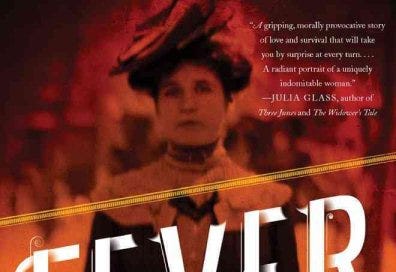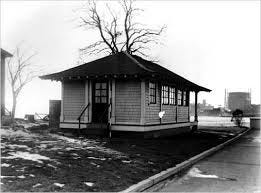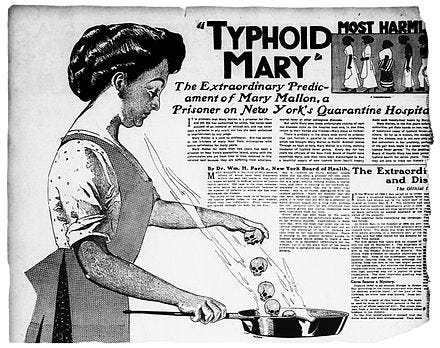Mary Beth Keane’s Fever, which vividly imagines the life of Typhoid Mary, was published in 2019. I checked because it seemed Eagen’s depiction of some of the absurd responses to outbreaks of cholera in the early 1900s might very well have had its roots in some of the absurd responses to the Covid pandemic.
Mary Mallon, dubbed “Typhoid Mary” by the press, was an Irish immigrant who came alone to America at fifteen and entered domestic service, working her way to employment as the cook for numerous wealthy New York City families over the years.
Mary lived in a tenement with her German lover, Alfred Breihof, a charming but unreliable alcoholic, whom she hoped would someday marry her. Still, her life was better than many of the women in the neighboring apartments, living in squalor with squalling children and husbands who sometimes beat them. Mary’s salary allowed a decent diet and even a luxury now and then.
She was as happy as a person in her station might hope to be at that time—until Dr. Soper, a “medical engineer” investigating an outbreak of cholera in 1907, noticed that there was a pattern of disease in homes where she had cooked.
He hounded her, showing up at her workplace, questioning her employers and neighbors. Mary Mallon was an asymptomatic carrier of typhoid fever, he concluded, and exiled her to East River Island, where she lived for years in a hut near a tuberculosis sanitorium there, with no contact but occasional letters.
The story doesn’t end there. But I’ll leave it to you to read the book and see how it goes. It’s not a happy story, but it’s a very interesting one—both Mary’s personal story and the larger story of an illness that in many ways mirrors the story of what we recently experienced ourselves during the Covid years.
Keane does a fabulous job of bringing the early 1900s in New York City alive, and there’s always something about good historical fiction that makes you understand your own time better.
If you’re looking for something more contemporary to read, I highly recommend Mary Beth Keane’s Ask Again, Yes. I really loved it!









Exactly! A wonderful little slice of history.
Cool!